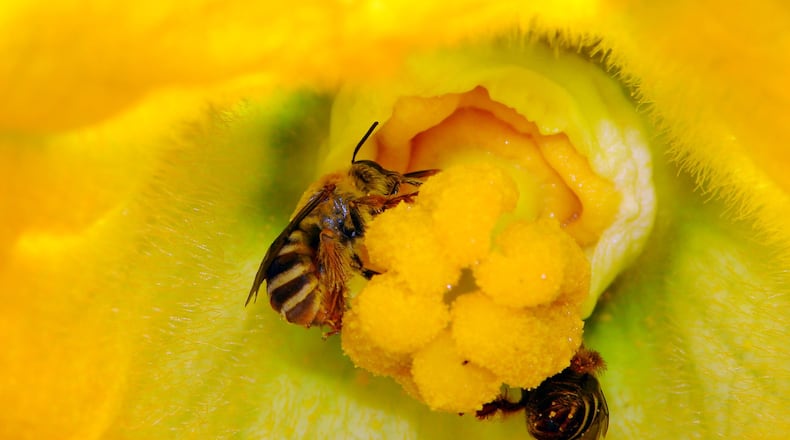The city of Decatur is now a safe haven for bees, a fitting way to kick off National Pollinator Week.
At a city commission meeting Monday evening, officials voted to adopt a resolution designating Decatur as a "Bee City." This is the first city in Georgia to earn this designation.
According to the resolution, the city must celebrate National Pollinator Week — recognized as the third week in June — host educational events, plant or restore sustainable bee habitats, and install at least one "authorized Bee City USA street sign in a prominent location."
Decatur has already been designated as a "Tree City," and Mayor Patti Garrett says the process to become a Bee City was similar and aligned with the city's goals.
"One of the tasks identified in our strategic plan is to support urban gardening opportunities," Garrett said. "Bees are of critical importance to gardens."
The idea was sparked by Deborah Palmer, a beekeeper and long-time Decatur and Oakhurst resident. The fuel for her project came from a mural that was painted in February on a building in Oakhurst, depicting smiling children with animals and plenty of happy bees.
"I learned that that mural was being paid for by the Bayer Corporation," Palmer said at the commission meeting. "I was deeply concerned."
Her concern was rooted in claims that Bayer is connected to the decline of bee populations across the world. The New York Times reported in 2013 that Bayer was "one of the major producers of a type of pesticide that the European Union has linked to the large-scale die-offs of honey bee populations."
Outraged, Palmer stood by the mural and offered passersby information about bees and pollinators as well as the reports of the hazards of Bayer's products. She wanted to see positive change, so she began work to see her hometown become Georgia's first Bee City.
Decatur's program will be handled by the Wylde Center, a nonprofit organization that cultivates greenspaces and community gardens. India Woodson, the city's landscape infrastucture coordinator, will be the liaison for the program.
Bee City USA was established in 2012, with Asheville, North Carolina, becoming America's first Bee City. There are currently 23 Bee Cities listed on the website; Decatur is not yet included. There is also a "Bee Campus" program. Georgia Technical Institute became the second Bee Campus in 2015. Learn more about the Bee City USA program on its website.
While Decatur is Georgia's first official Bee City in the program, the city of Clarkston adopted the Community Honey Bee resolution in August 2015. Expanded beyond bees to include all pollinators — like butterflies, beetles, bats and moths — Clarkston's resolution encourages city staff to use plants that are not treated with pesticides unsafe for pollinators.
"If you enjoy eating fresh fruits and vegetables, then you will understand that protecting our pollinators is paramount to the future success of farming," said Clarkston City Mayor Ted Terry.
"We are pleased that Decatur is taking steps to protect our country's precious pollinators," he continued. "We hope other communities will follow our lead."
About the Author
The Latest
Featured


